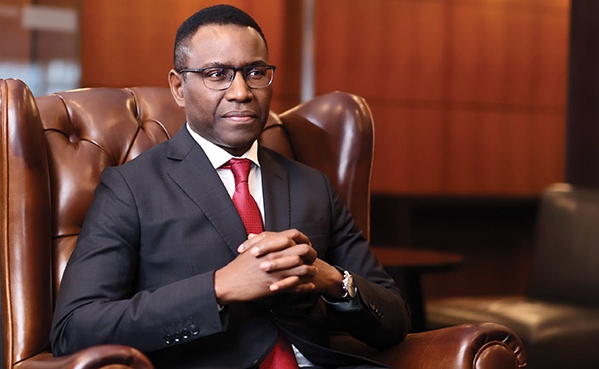Gambiaj.com – (DAKAR, Senegal) – The election of Mauritanian Sidi Ould Tah as the new president of the African Development Bank (AfDB) on Thursday, May 29, 2025, in Abidjan, has become a striking symbol of the waning influence of Senegalese diplomacy. The defeat of Senegal’s candidate, former Minister of Economy Amadou Hott, who garnered only 11% of the regional votes in the first round and a meager 2% in the second, has ignited critical reflections within Senegal’s diplomatic and political circles.
This defeat echoes the series of setbacks that have plagued Senegalese candidates vying for strategic positions on the global stage. Notably, in 2017, Abdoulaye Bathily lost to Chad’s Mahamat Faki in the race for the chairmanship of the African Union Commission.
Once celebrated as a formidable presence on the African and international stage, Senegal now finds itself grappling with a series of foreign policy missteps.
Amadou Hott’s disappointing performance has underscored what many analysts and observers see as a larger trend: the decline of Senegal’s capacity to shape regional alliances and secure high-level positions in multilateral organizations.
Echoes of a Glorious Past
Babacar Sané Ba, an international consultant, minced no words in his appearance on TFM’s “Info Evening” program hours after the vote. “It is first of all a great feeling of disappointment,” he remarked, lamenting that “our diplomacy is no longer one of influence.”
Drawing a stark contrast with earlier decades, Sané Ba cited the historic successes of Amadou Mahtar M’Bow at UNESCO, Jacques Diouf at FAO, and Awa Marie Coll-Seck as examples of Senegal’s once-revered stature. “At the time, we had candidates who embodied the weight of our diplomacy,” he recalled.
The figures from the AfDB election reveal a sobering reality: a third-place finish with just 3.55% of the votes in the final round. “It means there are perhaps only two or three African countries that supported our candidate,” Sané Ba noted grimly.
Even though the votes within the institution are secret, in accordance with its Privacy Policy, the 10 main shareholders of the African Development Bank (AfDB)—Nigeria (8.68%), the United States (6.52%), Egypt (6.12%), Japan (5.44%), Algeria (5.05%), South Africa (5.03%), Morocco (4.65%), Germany (4.12%), Canada (3.86%), and Côte d’Ivoire (3.82%)—who together control more than 53% of the Bank’s share capital, clearly did not support Hott.
A Failure of Strategy Behind a Broader Diplomatic Decline
Sané Ba’s analysis points to a fundamental failure in Senegalese diplomatic strategy—particularly the inability to secure the backing of Côte d’Ivoire, a fellow ECOWAS and UEMOA member. In a move seen as a diplomatic snub, Côte d’Ivoire instead threw its weight behind Mauritania’s candidate. “We failed to rally a key partner behind our candidate,” Sané Ba said, calling it a major strategic miscalculation.
Rather than recalibrating Senegal’s position after the first round—perhaps even withdrawing in favor of a stronger regional candidate—Senegal’s diplomatic machinery appears to have pressed ahead without sufficient groundwork.
“To support a candidacy is not to take a plane with a delegation to pose for pictures with heads of state,” Sané Ba cautioned, highlighting the need for real diplomatic engineering and strategic alliances.
The AfDB election loss is not an isolated incident. Recent setbacks—including failures to secure leadership roles in the WHO, FIFA Executive Committee, and the Confederation of African Football—suggest a pattern of declining Senegalese influence.
In parallel, Senegal’s sporting disappointments, including three lost continental titles in a single year, add to the perception of a nation slipping in regional standing.
“It’s a real diplomatic downgrading,” Sané Ba warned. “Do we have to accept today that Senegal loses its aura on the international scene?”
Looking Forward: A Call for Renewal
Despite the gloomy assessment, Sané Ba insists that all is not lost. He called for an urgent, rigorous review of the factors behind this defeat—“a cold analysis of the results”—and a wholesale rethink of how Senegal positions itself in international contests.
This, he argues, requires a long-term commitment, a professionalized approach to candidacies, and a revitalization of the country’s diplomatic network.
Significantly, Sané Ba dismissed speculation that Prime Minister Ousmane Sonko’s controversial comments about the “makeup” of public debt figures and the subsequent suspension of an IMF program played a role in the AfDB election loss. Rather, he sees the issue as part of a structural problem in how Senegal crafts and executes its diplomatic priorities.
As Mauritanian Sidi Ould Tah steps into the role of AfDB president, Senegal must now reckon with what Sané Ba describes as a “moment of national anger” for anyone concerned about the country’s future.
The challenge is clear: if Senegal is to reclaim its former stature, it must embark on a process of deep introspection and genuine diplomatic renewal.










